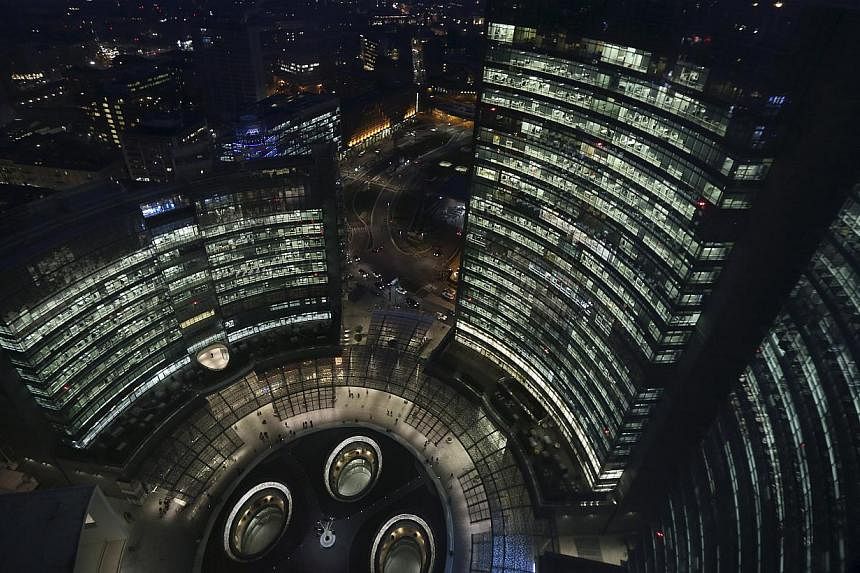KIEV (AFP) - Ukrainian security agents on Monday seized documents at the Kiev headquarters of Italy's UniCredit bank as part of a probe aimed at cutting off the suspected illicit financing of pro-Russian rebels in the separatist east.
The high-profile probe is part of increased efforts by Kiev's Western-backed leaders to choke off the insurgents' resources and force them to become an even bigger drain on Russia - whose own economy is undergoing severe stress.
Moscow flatly denies partially bankrolling the guerrillas' 13-month uprising or supporting them with troops and tanks.
But Ukraine's financial battle has secured the support of Western states.
The accounts of rebel leaders and top Russian officials believed to be orchestrating their campaign have been frozen in the United States and EU nations since last year and may remain so for the coming months.
A spokeswoman for Ukraine's State Security Service (SBU) said the snap inspections in Kiev were conducted "in order to halt possible operations aimed at financing terrorist organisations" in the separatist east.
Ukraine refers to the war as an "anti-terrorist operation" and prohibits financial or other links with the political chiefs or field commanders of the self-proclaimed Lugansk and Donetsk "people's republics".
SBU spokeswoman Olena Gitlyanska said authorities had no problems with the bank itself.
But UniCredit's Ukrainian office complained that the bank had been cooperating closely with the security service and saw no reason why investigators would effectively shut it down for a part of the day.
"The bank has provided all the requested information, cooperating with the investigation to the utmost," a bank spokeswoman said in a statement.
"However, SBU agents decided to block our branches' operations by restricting the movement of its personnel, and through other measures."
A Kiev district court last Wednesday allowed the SBU to seize documents of at least five firms suspected of being shells established to hide the identities of those paying the guerrillas' wages and recruiting new troops from Russia's volatile North Caucasus.
The decision immediately gained political dimensions because of the undeclared war that recently broke out between Kiev's year-old leadership and some of the ex-Soviet country's most powerful businessmen.
President Petro Poroshenko has vowed to cut down to size a clutch of tycoons whose financial support of political parties and ministers have enabled them to turn parliament and the government into effective lobbying groups.
Mr Poroshenko has already stripped Igor Kolomoisky - one of Ukraine's three richest oligarch - of both his post as Dnipropetrovsk region governor and de facto management of a major state oil firm.
Analysts are watching closely for signs of whom among the business barons Mr Poroshenko might target next.
The UniCredit spokeswoman stressed in her statement that "we do not want to be dragged into political games in Ukraine, which - considering the nature of the information requested - today's events were."
The raids are just the latest move in UniCredit's at-times rocky relationship with Ukrainian authorities.
Its domestic partner filed an angry protest when its Donetsk offices were searched as part of a probe into a mysterious property development company in September 2013.
The Italian group and Austria's Raiffeisen have bet heavily on the central and east European market and are currently suffering from the sharp economic contractions in both Russia and Ukraine.
UniCredit this year injected 250 million euros ($275 million) into its Ukrainian unit - originally established in 1997 - after reportedly failing to sell it off.

